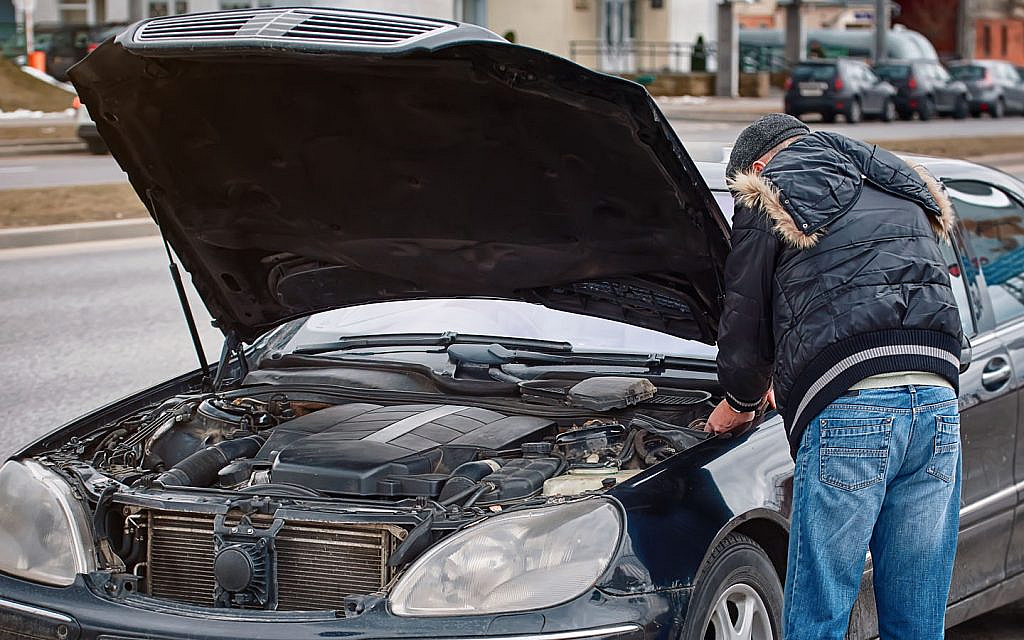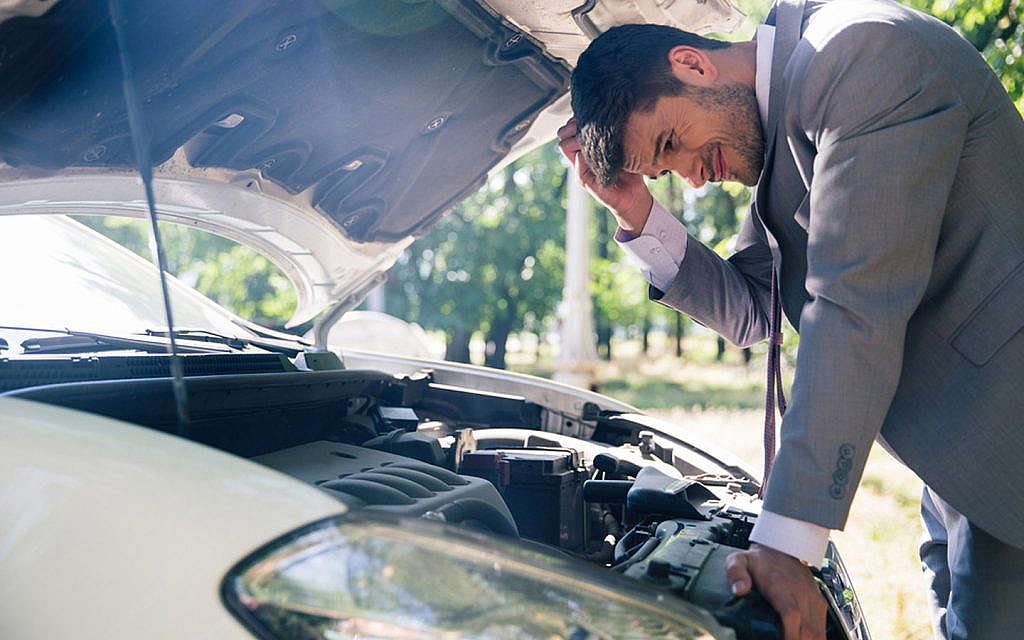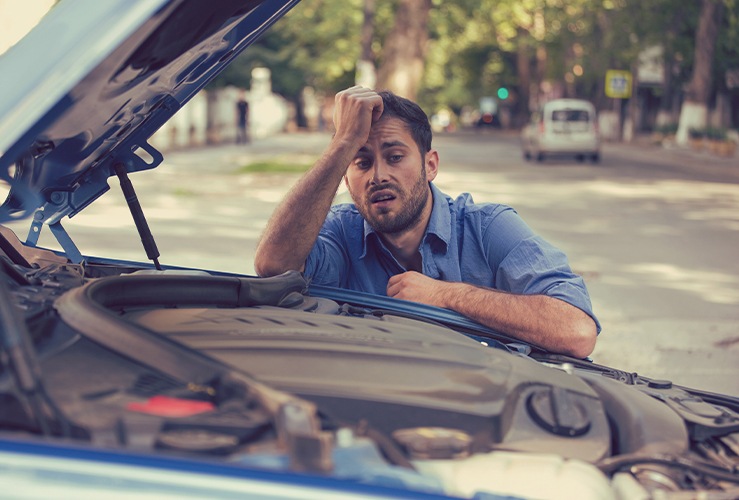No! If your car stalls sometimes, it’s usually not a big deal and won’t harm it much. Stalling happens when the engine briefly stops working, but modern engines can handle it without getting damaged.
Yet, if your car keeps stalling or you’re trying to start it too forcefully, it might lead to some wear and tear over time. To keep your car healthy, it’s important to fix any issues causing the stalls, like problems with the fuel system or spark plugs. Regularly taking care of your car and driving smoothly can also help prevent stalling and keep everything running well.
How does a car stall?

Fuel Issues
A clogged fuel filter can restrict the flow of fuel to the engine, leading to an inadequate supply and potential stalling.
Malfunctions in the fuel pump, responsible for pumping fuel from the tank to the engine, can disrupt the fuel delivery process.
Airflow Problems
If the mass airflow sensor fails, it can misinterpret the amount of air entering the engine, affecting the air-to-fuel ratio.
This valve regulates the idle speed of the engine. Malfunctions can disrupt the balance between air and fuel, causing stalling.
Ignition Problems
Worn or faulty spark plugs can hinder the combustion process, leading to engine misfires and, in some cases, stalling.
Issues with the ignition system, such as a malfunctioning ignition coil or distributor, can disrupt the spark timing, contributing to stalling.
What does stalling do to the engine?
When your car stalls, it means the engine has a temporary loss of power, usually due to issues with fuel, air, or spark. The act of stalling itself doesn’t necessarily cause direct damage to the engine.
However, if your car stalls frequently or if you try to restart it aggressively, it may contribute to wear and tear over time. Repeated stalling can strain certain engine components, like the starter or the battery.
Additionally, the underlying causes of stalling, such as fuel system problems or faulty spark plugs, can impact overall engine health. Regular maintenance and addressing the root causes of stalling help maintain the engine’s optimal performance.
Does Stalling Damage the Car?
Stalling occasionally won’t harm your car, but if it happens often or you restart aggressively, it could lead to wear on engine parts. Regular maintenance helps keep your car running smoothly and prevents potential damage.
Potential Damage to the Engine
Wear on Engine Components
Frequent stalling, especially if accompanied by aggressive restart attempts, can contribute to wear on essential engine components. The repeated strain on the starter motor, battery, and other parts involved in the starting process may lead to premature aging.
Oil Circulation Issues
Stalling doesn’t directly impact oil circulation, but if the engine stalls while running at high speeds, it could momentarily disrupt oil flow. While modern engines are designed to handle such situations, consistent high-speed stalling could affect long-term engine health.
Unburned Fuel Residue
Stalling can result in unburned fuel residue in the exhaust system. Over time, this may affect the catalytic converter and emissions control systems, potentially leading to increased emissions and reduced efficiency.
Impact on the Transmission and Other Systems:
Transmission Wear
While the act of stalling itself doesn’t directly damage the transmission, repeated stalling can cause additional stress on the transmission components, especially in automatic transmissions. Abrupt restarts may lead to jerky movements, impacting transmission longevity.
Electrical System Strain
Frequent stalling and restart attempts can strain the electrical system. The alternator, responsible for charging the battery, may need to work harder to compensate for the energy used during restarts, potentially affecting its lifespan.
Fluid Levels and Cooling Systems
Stalling doesn’t typically impact fluid levels, but it’s essential to ensure proper cooling. If stalling occurs frequently in high-temperature conditions, it may contribute to overheating, emphasizing the importance of a well-functioning cooling system.
When Stalling Might be Harmful
Occasional Stalling
An isolated stall, especially in low-impact situations, is unlikely to cause significant harm. Modern engines are designed with safety mechanisms to handle such events without lasting damage.
Addressing Underlying Issues
Stalling is often a symptom of underlying problems. Promptly addressing issues with the fuel system, spark plugs, or other related components can prevent potential damage and ensure the car runs smoothly.
Importance of Regular Maintenance
Regular maintenance, including checking and replacing faulty components, is crucial to preventing unnecessary wear and addressing problems before they escalate. This not only maintains optimal engine performance but also minimizes the risk of damage from stalling.
How do I stop stalling?

Smooth Acceleration
When accelerating, apply gentle pressure to the gas pedal rather than stomping on it. Smooth transitions help the engine adjust more effectively, reducing the risk of stalling.
Clutch Control
When releasing the clutch, do it gradually and smoothly. Ensure the clutch is fully engaged before accelerating to maintain a steady flow of power to the wheels.
Idle Speed Adjustment
Check your car’s manual to see if it allows for idle speed adjustment. Follow the manufacturer’s recommendations to set it within the specified range, preventing stalling when the car is stationary.
Anticipate Stops
Plan your stops and downshift smoothly as you approach. This allows the engine to adjust to the reduced speed, minimizing the chances of stalling when coming to a complete stop.
Maintain Your Vehicle
Ensure your car receives regular maintenance, addressing issues with the fuel system, spark plugs, and other components. A well-maintained vehicle is less likely to experience stalling.
Practice in a Safe Area
If you’re learning to drive a manual transmission, practice in a safe and open area. This allows you to focus on developing clutch control, understanding the engagement point, and gaining confidence in managing different driving situations.
FAQ
How harmful is stalling?
Stalling is generally not harmful if it happens occasionally. Modern engines are designed to handle brief stalls without significant damage. However, frequent stalling or aggressive restarts can contribute to wear on engine components.
Can stalling a car damage the battery?
Yes, frequent stalling and aggressive restart attempts can strain the battery. Repeated attempts to restart the engine may lead to additional stress on the battery, potentially affecting its lifespan.
Can you stall at high speeds?
While it’s less common, stalling at high speeds is possible. Modern cars have safety mechanisms to reduce this risk, but consistent high-speed stalling may impact the engine and other components.
Why do automatic cars not stall?
Automatic cars have a torque converter that decouples the engine from the transmission when stopped, preventing stalls. This allows the engine to keep running even when the vehicle is stationary.
Why do manual cars stall?
Manual cars stall when there’s a mismatch between clutch engagement and acceleration. Insufficient clutch control, improper shifting, or not giving enough gas can lead to stalling.
Does stalling damage the clutch?
Frequent stalling can contribute to wear on the clutch. Abrupt restarts and inconsistent clutch engagement may lead to premature wear and reduce the clutch’s lifespan.
At what RPM does a car stall?
The exact RPM at which a car stalls varies but generally occurs when engine speed drops too low for proper combustion. This threshold can depend on factors like the vehicle model and engine condition.
Why do I stall in first gear?
Stalling in first gear often happens due to a combination of factors, such as insufficient gas, releasing the clutch too quickly, or not finding the right balance between clutch and accelerator.
How do you stop a manual car without stalling?
To stop a manual car without stalling, smoothly press the clutch and brake pedals simultaneously as you come to a stop. This disengages the engine from the transmission, preventing a stall.
Final thoughts
Occasional stalling is usually not harmful to your car, as modern engines are designed to handle it. However, it’s essential to address underlying issues and practice regular maintenance to prevent wear on engine components.
Remember, a well-maintained car ensures smoother rides and helps avoid potential damage from frequent stalling.

